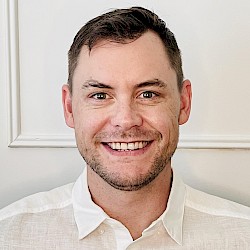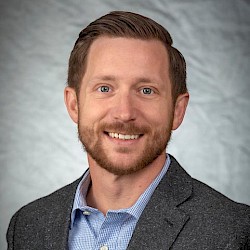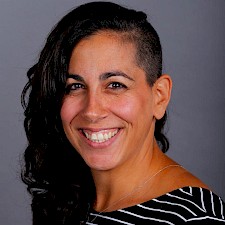Webinar
Mentoring Through Sticky Situations: Navigating and Guiding Students Through Ethical Challenges
Webinar Archive
If you already purchased this webinar, you can access the archive.
Otherwise, you can register for access to the archive.
Keep your confirmation email(s) as CEU documentation for AASP webinars and virtual conferences.
Description
Session Length
75 minutes
Speakers
Dylan Firsick, PhD, CMPC, University of Georgia Athletics Association
Gily Meir, PhD, CMPC, University of Western States
Matt Condie, EdD, CMPC, University of Western States
Overview
With the growth of sport and performance psychology training programs throughout the United States, the accessibility offered through online and asynchronous learning platforms, and the enhanced certification process for obtaining the CMPC credential, the demand for CMPC mentorship has never been higher. As sport psychology professionals offering CMPC mentorship through virtual and in-person training modalities, a host of considerations and ethical pitfalls exist and must be navigated to ensure the highest standards of service to the client while also providing adequate and developmentally appropriate mentorship to the trainee. In this webinar, the presenters aim to explore best practices for ethical, professional, and multiculturally competent mentorship, provide practical insights into the multicultural factors and diversity-related considerations in the virtual mentorship experience, and examine how the overlap of clinical psychotherapy supervision and mental performance mentorship can pose unique challenges for both mentors and mentees in providing ethical training in sport psychology, mental performance consultation, and clinical treatment. A discussion of the importance of identifying ethical issues will also be included through utilizing a framework for addressing critical issues with mentees and the vicarious liability that exists in the mentorship relationship.
Learning Objectives
Participants will:
- Identify and discuss common challenges, pitfalls, and considerations when providing clinical psychotherapy supervision, mental performance mentorship, or both and how to recognize similarities and differences.
- Discuss the importance of identifying ethical issues when they occur, utilizing a framework for addressing issues with mentees, and the considerations of vicarious liability that exist in the mentorship relationship.
- Recognize and acquire knowledge of best practices for the ethical, professional, and multicultural considerations in providing mentoring experiences in virtual settings
- Gain practical insights into the multicultural factors and diversity-related considerations in the virtual mentorship experience to enhance equity in access. Specifically, emphasizing cultural sensitivity through the consideration of the geo-social cultural context of the mentees and the environment in which they provide services.
CE Credit
This program has been approved for 1.25 CEUs in the area of Mentorship/Supervision to partially meet the continuing education recertification requirement for Certified Mental Performance Consultants® (CMPC).
Program Format
You can attend an AASP webinar from your home or office. All you need is an internet connection. You can see the presentation slides on your computer or mobile device, and listen to the audio through your device, or call in with a phone. Registrants will be provided with login information the day prior to the session. The webinar will also be archived for those who wish to watch it at a later date.
 Dr. Matt Condie, an Australian trained and based clinical psychologist with a dual training in sport and performance psychology, brings a diverse range of experiences to this webinar. Dr. Condie has worked extensively in sport settings, and currently serves elite athletes at Olympic and international levels through the Australian Institute of Sport (AIS) and Australian Rules Football athletes through the AFL Players Association (AFLPA). Dr. Condie's areas of consulting expertise are youth and collegiate populations, parental involvement, and supporting elite athletes in high-performance environments and transitions in and out of high-performance sport. Dr. Condie’s expertise extends to clinical psychology, including child protection, youth, and adult mental health, forensic drug and alcohol, and refugee mental health. Currently teaching in the Department of Sport Psychology at University of Western States, Dr. Condie also contributes as a visiting academic in research at the University of Adelaide and Central Queensland University. He mentors individuals pursuing CMPC certification, offering applied and best-practice guidance to ensure mentees and consultants provide ethical, culturally competent, and effective in-person and virtual services. Drawing from his blend of applied practice and academic experiences, Dr. Condie navigates ethical considerations in both clinical and sport as well as in-person and virtual contexts, providing meaningful insights for professionals in the field.
Dr. Matt Condie, an Australian trained and based clinical psychologist with a dual training in sport and performance psychology, brings a diverse range of experiences to this webinar. Dr. Condie has worked extensively in sport settings, and currently serves elite athletes at Olympic and international levels through the Australian Institute of Sport (AIS) and Australian Rules Football athletes through the AFL Players Association (AFLPA). Dr. Condie's areas of consulting expertise are youth and collegiate populations, parental involvement, and supporting elite athletes in high-performance environments and transitions in and out of high-performance sport. Dr. Condie’s expertise extends to clinical psychology, including child protection, youth, and adult mental health, forensic drug and alcohol, and refugee mental health. Currently teaching in the Department of Sport Psychology at University of Western States, Dr. Condie also contributes as a visiting academic in research at the University of Adelaide and Central Queensland University. He mentors individuals pursuing CMPC certification, offering applied and best-practice guidance to ensure mentees and consultants provide ethical, culturally competent, and effective in-person and virtual services. Drawing from his blend of applied practice and academic experiences, Dr. Condie navigates ethical considerations in both clinical and sport as well as in-person and virtual contexts, providing meaningful insights for professionals in the field.
 Dr. Dylan Firsick is a sport psychologist and certified mental performance consultant (CMPC) through the Association for Applied Sport Psychology (AASP). He is currently an Assistant Athletic Director and the Director of Mental Health and Performance at the University of Georgia Athletics Association. In partnership with the UGA Counseling Psychology PhD program, Dr. Firsick oversees the clinical supervision and CMPC mentorship for six advanced doctoral students. He is also a member of the Clinical and Counseling Sport Psychology Association (CCSPA) and serves as the head of the Clinical Training Programs Subcommittee. Prior to joining UGA, Dr. Firsick spent 6.5 years at the University of Southern California as a clinical and sport psychologist in the athletics department and a clinical assistant professor of psychiatry and behavioral sciences at Keck Medicine of USC. He was also an adjunct assistant professor in the marriage and family therapy program at USC Rossier School of Education. Dr. Firsick received his PhD in counseling psychology from the University of Northern Colorado, his master’s in clinical psychology from the University of Colorado Denver, and his bachelor’s degree in psychology from Biola University where he was a member of the Men’s Soccer team. Dr. Firsick completed a pre-doctoral internship in health service psychology at USC’s Counseling and Mental Health (CMH) Services and a clinical sport psychology postdoctoral fellowship in the USC Athletics Department the following year. Dr. Firsick is a Licensed Psychologist in California and Georgia and maintains a small private practice focused on sport performance and athlete development for athletes from childhood to professional.
Dr. Dylan Firsick is a sport psychologist and certified mental performance consultant (CMPC) through the Association for Applied Sport Psychology (AASP). He is currently an Assistant Athletic Director and the Director of Mental Health and Performance at the University of Georgia Athletics Association. In partnership with the UGA Counseling Psychology PhD program, Dr. Firsick oversees the clinical supervision and CMPC mentorship for six advanced doctoral students. He is also a member of the Clinical and Counseling Sport Psychology Association (CCSPA) and serves as the head of the Clinical Training Programs Subcommittee. Prior to joining UGA, Dr. Firsick spent 6.5 years at the University of Southern California as a clinical and sport psychologist in the athletics department and a clinical assistant professor of psychiatry and behavioral sciences at Keck Medicine of USC. He was also an adjunct assistant professor in the marriage and family therapy program at USC Rossier School of Education. Dr. Firsick received his PhD in counseling psychology from the University of Northern Colorado, his master’s in clinical psychology from the University of Colorado Denver, and his bachelor’s degree in psychology from Biola University where he was a member of the Men’s Soccer team. Dr. Firsick completed a pre-doctoral internship in health service psychology at USC’s Counseling and Mental Health (CMH) Services and a clinical sport psychology postdoctoral fellowship in the USC Athletics Department the following year. Dr. Firsick is a Licensed Psychologist in California and Georgia and maintains a small private practice focused on sport performance and athlete development for athletes from childhood to professional.
 Dr. Gily Meir was born and raised in Israel where she also received her BA in Psychology, Sociology, and Anthropology from the University of Haifa, Israel. She received her PhD in Educational Psychology with a major in Sport Psychology from Florida State University, and an MS in Kinesiology with a major in Sport and Exercise Psychology from California State University, Long Beach. Dr. Meir is a Certified Mental Performance Consultant (CMPC) and approved CMPC mentor through the Association for Applied Sport Psychology. Dr. Meir’s main research focuses on training and supervision of Mental Performance Consultants. In addition, she conducted, presented, and published research in the area of attention and information processing in sport, learning and motor behavior and control, and athletes’ experiences and attitudes towards counseling. Currently Dr. Meir serves as the coordinator of the applied training of the Sport and Performance programs at the University of Western States (UWS). As a researcher-practitioner and a former collegiate tennis player, Dr. Meir holds a private practice in the Bay Area in California. She has been consulting athletes and coaches of different levels, sport and ages for over a decade.
Dr. Gily Meir was born and raised in Israel where she also received her BA in Psychology, Sociology, and Anthropology from the University of Haifa, Israel. She received her PhD in Educational Psychology with a major in Sport Psychology from Florida State University, and an MS in Kinesiology with a major in Sport and Exercise Psychology from California State University, Long Beach. Dr. Meir is a Certified Mental Performance Consultant (CMPC) and approved CMPC mentor through the Association for Applied Sport Psychology. Dr. Meir’s main research focuses on training and supervision of Mental Performance Consultants. In addition, she conducted, presented, and published research in the area of attention and information processing in sport, learning and motor behavior and control, and athletes’ experiences and attitudes towards counseling. Currently Dr. Meir serves as the coordinator of the applied training of the Sport and Performance programs at the University of Western States (UWS). As a researcher-practitioner and a former collegiate tennis player, Dr. Meir holds a private practice in the Bay Area in California. She has been consulting athletes and coaches of different levels, sport and ages for over a decade.
Registration
Students – $25.00
Members – $35.00
Non-members – $50.00
Register to access the archive




